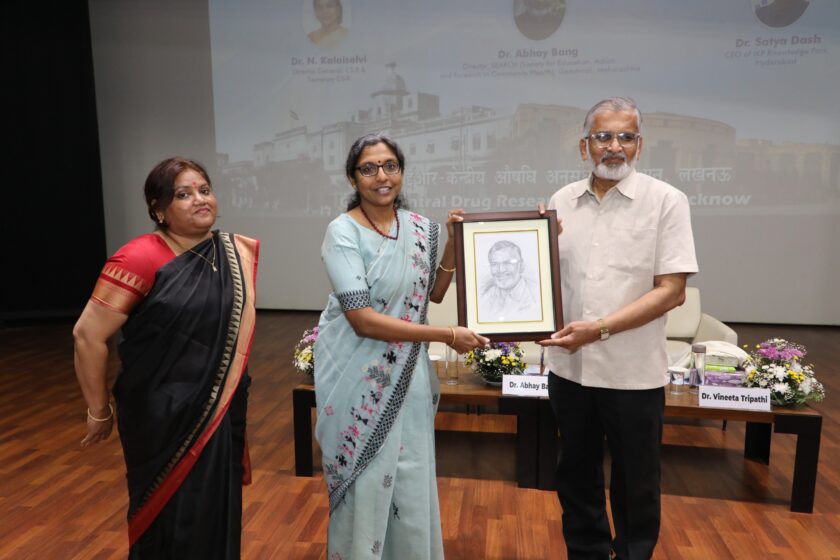By Balasubramaniam Iyer
Regional Director, International Cooperative Alliance Asia and Pacific
The passage of the bill in Parliament to establish India’s first National Cooperative University—Tribhuvan Cooperative University—marks a historic milestone in the country’s cooperative movement. That this development coincides with the upcoming International Year of Cooperatives in 2025 adds to its symbolic and strategic significance. As Union Home and Cooperation Minister Shri Amit Shah aptly stated, the university is poised to become a powerful vehicle for realizing the vision of “Prosperity through Cooperation.”
India is home to the world’s largest cooperative movement, comprising more than 800,000 cooperative societies and over 287 million members. From food and clothing to housing, cooperatives are deeply embedded in the everyday lives of citizens. But they are not merely economic institutions—they stand as embodiments of community-driven development, economic equity, and social justice. The formation of the Ministry of Cooperation in 2021 signaled a renewed national commitment to this sector, aiming to expand its reach, enhance its efficiency, and establish it as a foundation for inclusive development.
Since then, the ministry has taken notable steps:
-
₹2,516 crore allocated for computerizing 67,390 Primary Agricultural Credit Societies (PACS)
-
Model by-laws introduced in 32 states, enabling PACS to undertake over 25 business activities
-
A target of forming 200,000 new Multi-Purpose Cooperative Societies (MPACS)
-
Support for 1,100 Farmer Producer Organizations (FPOs)
-
Conversion of 44,000 PACS into Common Service Centres (CSCs)
Tax incentives, easier access to credit, and decentralized storage facilities are enhancing operational capabilities. The establishment of three new national cooperative federations for seeds, exports, and organic products underscores the government’s intent to position cooperatives as key drivers of India’s development.

Yet, despite its vastness, the cooperative sector suffers from inadequate, uneven, and underdeveloped education and training infrastructure. The demand for qualified professionals—across managerial, administrative, technical, and operational roles—far exceeds the supply. Investing in the capacity building of existing staff and board members is also essential. Many lack access to regular training and structured education. Without standardized curricula, quality assurance, and institutional alignment, the sector cannot realize its full potential or ensure sustainable growth.
There’s also a pressing need to attract a new generation of professionals—individuals not only equipped with modern skills but also inspired by cooperative values and committed to innovation in the field. Tribhuvan Cooperative University is expected to play a transformational role in this regard—emerging as a center for education, training, and research that nurtures the next generation of cooperative leadership while strengthening competencies at all levels.
Named after Shri Tribhuvandas Patel, the visionary architect of the Amul model, and located in Anand, the cradle of India’s dairy cooperative revolution, the university is both a symbolic tribute and a strategic intervention. The choice of IRMA (Institute of Rural Management, Anand)—a pioneer in cooperative management education for decades—as its foundation is both practical and inspirational. With IRMA being designated a Centre of Excellence, the university will build on a strong legacy of preparing professionals equipped to navigate the challenges and opportunities in cooperative enterprises.
The university’s vision extends well beyond awarding formal management degrees. It aims to reach board members of primary and secondary cooperatives, professionals already engaged in the sector, and a new generation of youth interested in ethical, sustainable, and inclusive business models. The university will offer flexible learning modules, certification and degree programs, digital access, and serve as a platform for field-based research—anchored in cooperative values like self-help, democratic control, and mutual responsibility.
It also has the potential to evolve into a national knowledge hub, facilitating dialogue among stakeholders, offering evidence-based policy insights, and supporting innovations tailored to rural realities. Within India’s diverse cooperative landscape—spanning dairy, credit, housing, fisheries, and textiles—the university will serve as a convergence point for education, policymaking, and sectoral expertise to discover new pathways for advancement.
Globally, cooperative education has always been at the heart of successful movements. Since the days of the Rochdale Pioneers in 1844, one of the founding principles has been to allocate part of the profits to education. The **fifth cooperative principle—education, training, and information—**remains a cornerstone, ensuring that members, leaders, and communities understand and uphold the cooperative model. It is this deep-rooted educational tradition that sustains cooperative governance, encourages innovation, and strengthens accountability.
In this context, Tribhuvan Cooperative University will be more than just an academic institution—it could become a national and global center of cooperative knowledge, where policy and practice intersect, and leadership is driven by learning. At the ICA Global Cooperative Conference 2024 held in New Delhi, Prime Minister Shri Narendra Modi called upon Indian cooperatives to come together, create shared platforms, confront common challenges, and lead the Global South in charting a collective path forward. The national university will serve exactly this purpose—facilitating dialogue, sharing best practices, and strengthening South-South cooperation among cooperatives.
In a world increasingly seeking economic models that ensure inclusive, democratic, and sustainable development, India’s cooperative movement—and now its first Cooperative University—offers not just inspiration, but direction. The university must remain accessible, innovative, and impactful, fostering leadership across all levels of the movement. The foundation has been laid; the time has come to build an institution worthy of the vision it represents—an institution that will educate, empower, and energize future generations through the enduring power of cooperation, ensuring that cooperatives continue to build a better future for all.









